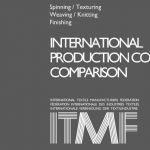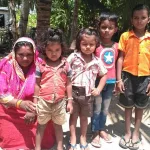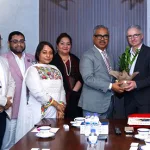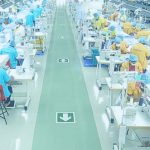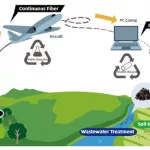Bangladesh’s readymade garment industry, which today exports over USD 10 billion worth of garments, has radically changed the lives of millions of Bangladeshis. The garment factories provide direct employment to some three million people, most of whom are poor women for whom there were no formal jobs 30 years ago, and indirect support to millions more. The sector developed as the result of the 1974 Multi Fibre Arrangement (MFA). The first factories in Bangladesh were set up in the late 1970s as subcontractors to Hong Kong, Korean and other East Asian companies seeking to circumvent the export quotas which the MFA imposed on their own countries. These quotas served to create a lucrative niche for the Bangladeshi industry, one which Bangladeshi entrepreneurs quickly moved to fill. Large, modern factories were built on the outskirts of Dhaka and Chittagong, as well as in the government’s export promotion zones; firms both large and small found their order books full and their profit margins high.
The sector developed as the result of the 1974 Multi Fibre Arrangement (MFA). The first factories in Bangladesh were set up in the late 1970s as subcontractors to Hong Kong, Korean and other East Asian companies seeking to circumvent the export quotas which the MFA imposed on their own countries. These quotas served to create a lucrative niche for the Bangladeshi industry, one which Bangladeshi entrepreneurs quickly moved to fill. Large, modern factories were built on the outskirts of Dhaka and Chittagong, as well as in the government’s export promotion zones; firms both large and small found their order books full and their profit margins high.
However, in the early bonanza years there was little concern for, or understanding of issues, such as safety, workers’ rights, environmental pollution and productivity. Older, converted buildings often became death-traps for workers, when they caught fire or collapsed from the excess weight of the machines. Workers were expected to work whenever they were needed, for as long as they were needed, without reasonable breaks, overtime pay or days off. Polluting chemicals were simply dumped into gutters or rivers. Wastage was rife: when orders increased, extra machines and workers were simply added, with no thought given to efficient workflow processes, warehousing requirements or the economics of handling.
Objective
Productivity and compliance with international social standards are high, and garments are produced in an environmentally sustainable manner.
Approach
Workable solutions are being developed in an inter-ministerial approach that includes all of the major players. Local suppliers, international buyers, non-governmental organisations, industrial associations and the relevant representatives of the government are all working together to introduce social and environmental standards, and models of arbitration. At the same time, the programme offers capacity building measures and promotes the use of innovative approaches. This is the only way for the industry to remain competitive in the long term, while maintaining humane social standards and environmentally sound production methods.
Training is offered for compliance inspectors with the Ministry of Labour and Employment, the Bangladesh Knitwear Manufacturers and Exporters Association (BKMEA), and the Bangladesh Garment Manufacturers and Exporters Association (BGMEA). The professional associations and state inspectors also address issues of occupational health and safety. For example, they are equipped with devices for measuring levels of noise and air pollution in factories.
Other courses provided include training for the trainers of social compliance who work as consultants for individual garment producers, NGOs, and public and private training institutions, and training for factory managers responsible for improving social compliance and health and safety in their respective factories. To help workers understand their rights and uphold them, NGOs such as the Awaj Foundation and Karmajibi Nari organise awareness-raising workshops and distribute information in the factories. They also provide legal advice and assistance to workers attempting to claim rights, such as maternity leave and overtime pay, or who want compensation for injuries incurred at work. GIZ is supporting these NGOs, and others like them, with material help and training. The programme supports a vocational training programme for garment workers set up by the Dhaka Ahsania Mission in 2006; and it is working with BKMEA and BGMEA in various demonstration projects to help their members enhance productivity and promote ecological and energy efficiency. Moreover, it has contributed to other BGMEA and BKMEA projects which demonstrate the extensive savings that can be achieved through eco-efficiency and appropriate waste management.
Finally, another area of the support for BKMEA has been in diversification and expansion into non-traditional markets. After trade missions to Latin America, buyers from the countries visited have begun placing orders in Bangladesh.
Results achieved so far
Employers who have taken on graduates of the Ahsania training programme report that they are very satisfied with the skill level and work ethic of their new workers. Both the workers and the factories have benefited from this measure because in the past there was only a small number of suitable formal training facilities and workers were mostly trained on the job. The garment factories have therefore requested the Ahsania Mission to continue training new operators. Several institutions now offer courses, developed by the programme, in which female workers can train to become supervisors. Many women who have completed this training are now earning higher wages. They have career prospects which were rare or non-existent until very recently.
BKMEA member factories have improved their productivity by around 33% on average, after introducing ‘lean manufacturing’, a programme that eliminates waste by using the work force, space, and machinery more efficiently. In some cases labour productivity was doubled without the need for further investment, which led to higher profits, but also higher wages.
In five factories, the magnetic ballasts traditionally used in fluorescent strip lights were replaced with electronic ballasts. Energy consumption in these factory was seen to fall by up to 28%, with average monthly savings of 13 takas (EUR 0.14) per light per month. At the same time, heat emissions are reduced and lighting conditions improve (electronic ballasts reduce flickering and increase the voltage range), which makes for a more comfortable working environment. Electronic ballasts also last three times longer than magnetic ballasts and are easy to recycle, thus reducing toxic pollutants. Given that energy accounts for about 20% of the final product cost in Bangladesh’s garment industry, the potential savings are enormous. Experts trained by the programme to work as energy auditors and consultants are already offering their services to the industry.
Following the trade missions to Latin America, new and improved business relations have developed. One Chilean importer has already opened a commercial branch in Bangladesh to facilitate its buying activities.

